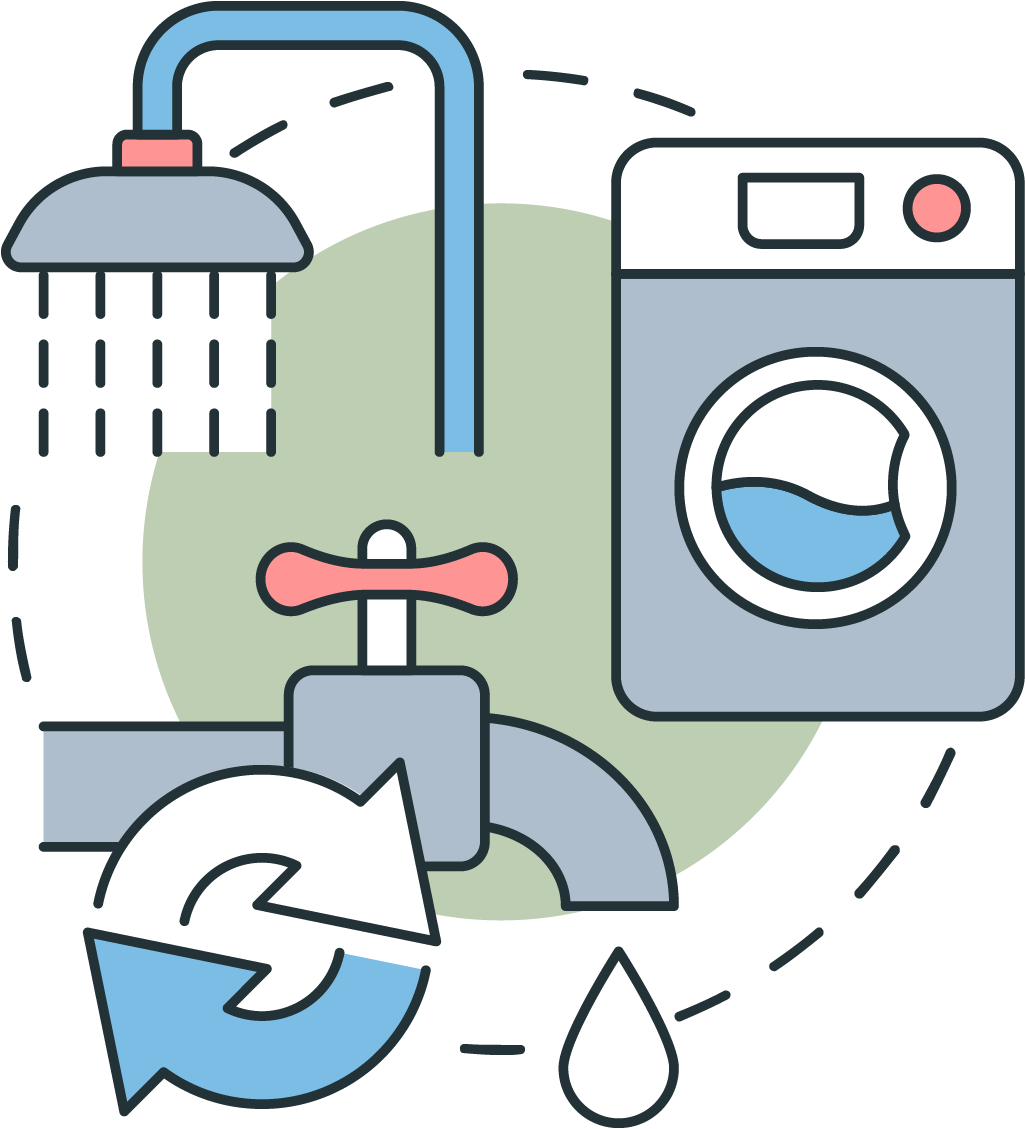The water that comes from your shower, bathtub, non-food prep sink and washing machine can be used in the home landscape.
SAWS often gets calls from customers asking questions about graywater, from what it is to whether it’s safe to use and if any permits are required to do so. Rules vary from city to city and state to state, so here’s the lowdown in San Antonio.
Graywater is the water that comes from showers, bathtubs, non-food prep sinks and washing machines. In other words, it’s water that doesn’t have food or waste in it. (In contrast, water from toilets is sometimes referred to as “black water.”)
Why does this matter? Graywater is in a ‘gray’ area, so to speak. It’s not exactly filthy dirty, but you wouldn’t want to drink it either. This water is prime for watering ornamental plants and even a few very select vegetables.
While it is legal in San Antonio to capture your residential graywater without a permit or special permission, City regulations limit the reuse of graywater to single family homes with a few stipulations:

- The irrigated area must be within a fenced area.
- Graywater may never leave the property.
- Graywater cannot be used during times of rain.
- Graywater may never create a health nuisance (puddle or stand).
- The discharge point of the pipe may not be closer than 10 feet from the property line.
There are many ways to rig hosing from a sink, bathing area or washer. The most popular method I’ve seen is running a hose from a clothes-washing machine in the garage out a back door to the yard. In fact, two of my friends were having issues with their washer drainage pipe and decided to utilize the graywater to irrigate their plants. Problem solved.
It’s up to you how you do it, but be extremely mindful of what you put down the selected drain — remember that it’s going into the environment. Look for laundry detergents and cleaning solutions marked ‘phosphate-free’ or ‘biodegradable’ when selecting products to use with a fixture that leads to your backyard.
Is graywater right for you? If you’re using graywater from a regular source (i.e. a clothes washing machine), you’ll have a decent amount of water to put down often. Keep that in mind if your landscape consists of mostly native and drought-tolerant plants. Since their watering requirements are minimal, they would likely be unhappy with the amount of water offered by a regular dousing from household fixtures.
And even if you decide graywater may not be appropriate for use at your own home, it will be recycled anyway. In San Antonio, all household wastewater that goes down a pipe — gray or black — is ultimately treated, recycled and delivered for use at participating golf courses, parks, power plants, and commercial and industrial customers, as well as to the city’s River Walk.
The purple pipes you see around town are part of the largest direct recycled water delivery system in the U.S. Rest assured: whether or not you reuse graywater at home, it will not go to waste.




